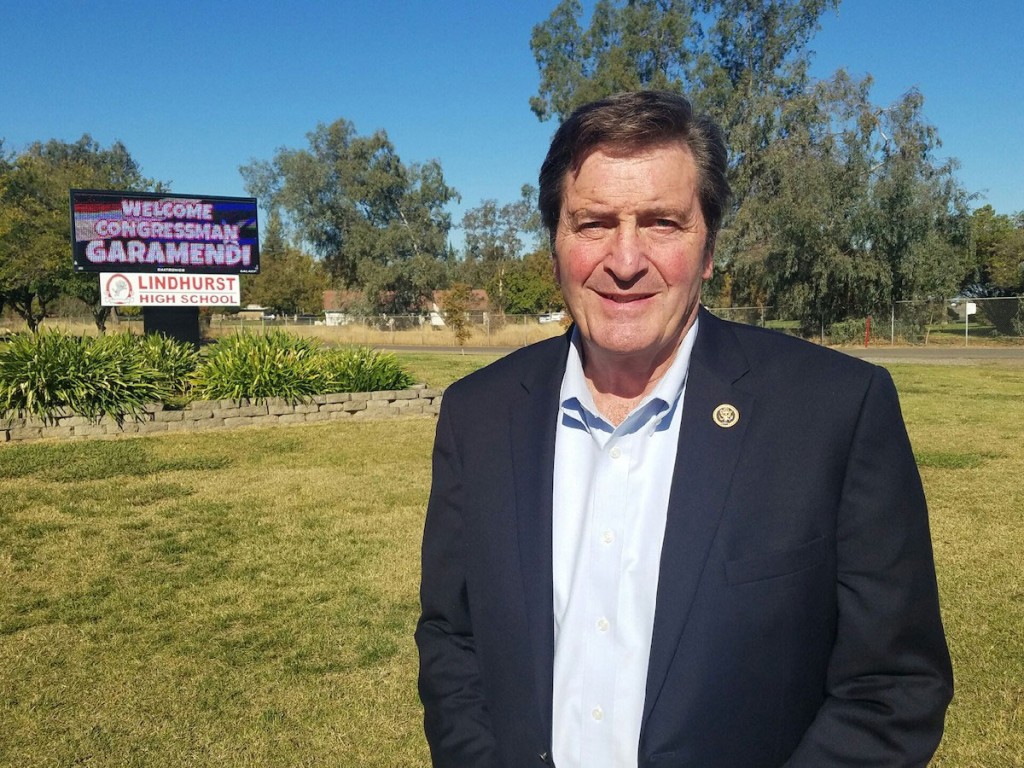On September 25th, Congressman John Garamendi (D-CA) applauded passage of his amendment to the “Clean Economy Jobs and Innovation Act” (H.R. 4447) by the U.S House of Representatives.
Garamendi’s amendment clarifies that the Outer Continental Shelf Lands Act, a 1953 law governing offshore mineral and energy development, applies to lease sales for non-fossil fuel energy sources such as wind power, hydrokinetic, or ocean thermal energy conversion. The Garamendi amendment will enforce Jones Act requirements for all offshore renewable energy production.
In an interview with AJOT, Garamendi said, “We discovered that wind platforms under the Act are not covered under the Jones Act as is the case with the off-shore oil and gas industry where the Jones Act applies. So, unlike in the oil and gas industry you were not required to use Jones Act vessels, which are U.S. built and U.S. crewed, to maintain and support offshore wind farms. Instead, the Act allows offshore wind platforms to avoid compliance with the Jones Act and environmental laws. So, we said that’s not good and so my amendment brings U.S. jurisdiction of wind turbines under U.S. law for the Jones Act and all others. If it’s good enough for the offshore oil and gas industry, then it should be good enough for the offshore wind industry.”

He explained that: “Offshore wind development will play a critical role in our nation’s transition to a clean energy economy … Demand for offshore wind development in federal waters is strong, and Congress must act to ensure this burgeoning industry abides by federal laws and regulations including the Jones Act, so we have the strongest possible labor and environmental protections.”
Jones Act
“I have been a vocal proponent of the Jones Act during my time on the Subcommittee on Coast Guard and Maritime Transportation. The Jones Act is the lifeblood for a U.S. maritime trade that supports 650,000 jobs and almost $100 billion in annual economic impact. Ensuring our nation’s offshore renewable energy investments are governed by the strongest labor protections, environmental requirements, and safety standards is commonsense.
Attacks on the Jones Act
Garamendi said that attacks on the Jones Act continue as special interests continue to seek exemption from the law: “The exemptions from the Jones Act are encouraged by Libertarian organizations such as the Cato Institute who attack the role of government and regulation and the Jones Act. Undermining the Jones Act has its political supporters on Capitol Hill. I think this helps explain why we continue to see efforts by the Trump administration to get exemptions to the Jones Act, such as we saw when U.S. flag carriers did a good job transporting emergency supplies to Puerto Rico after Hurricane Maria but even so, an exemption was made by the administration to use foreign flagged vessels that were not needed as we had plenty of U.S. flag vessels.”
In September of 2017, the Trump administration approved an exemption to the Jones Act allowing foreign-flag carriers to transport goods to Puerto Rico following the devastation caused by Hurricane Maria.
Tom Allegretti, then president and CEO of The American Waterways Operators, told AJOT there was never any need for foreign-flag carriers because U.S. carriers could do the job of supplying Puerto Rico. The real problem, he said, was port facilities and truck transport on the island were seriously damaged by Hurricane Maria disrupting supplies and recovery.
Expanding Jones Act Requirements for War Time Emergencies
Garamendi, who chairs the Armed Services Subcommittee on Readiness, said that he is working on proposals to expand federal supports for Jones Act vessels to support military sea lift efforts:
“On the Armed Services committee we are working to expand the role of Jones Act ships in support of war time emergencies and expand the support for Jones Act vessels that can be deployed …This would include tankers and roll on and off ships … these vessels with small upgrades, can be used to carry tanks and fuel for support of the Armed forces.”
The rationale? “We don’t want to get into a situation in the Pacific where we have to go to Beijing and ask for a couple of tankers!”

